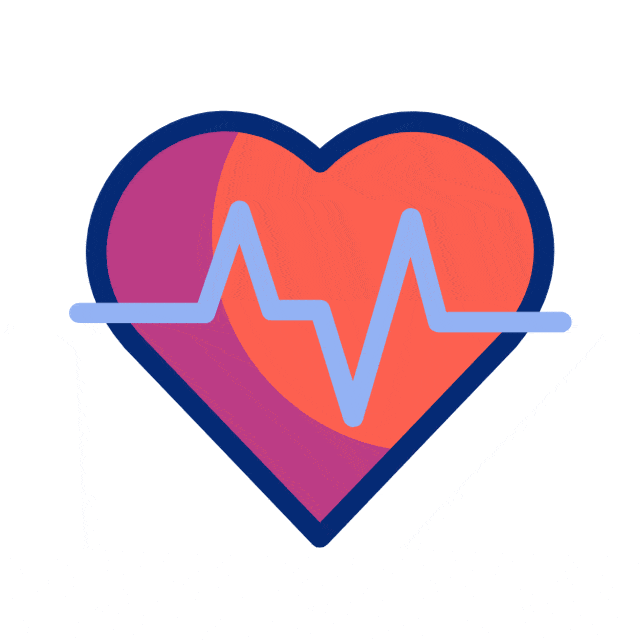Category : Healthcare
On 26 November 2021, WHO designated the variant B.1.1.529 a variant of concern (VOC), following advice from the WHO’s Technical Advisory Group on Virus Evolution. The variant was given the name Omicron. Omicron is a highly divergent variant with a high number of mutations, including 26-32 mutations in the spike protein, some of which were likely to be associated with humoral immune escape potential and higher transmissibility.
The overall risk related to Omicron remains very high for a number of reasons. First, the global risk of COVID-19 remains very high overall. Second, current data indicate that Omicron has a significant growth advantage over Delta, leading to rapid spread in the community. The rapid increase in cases will lead to an increase in hospitalisations, may pose overwhelming demands on health care systems and lead to significant morbidity, particularly in vulnerable populations.
The overall threat posed by Omicron largely depends on four key questions:
- how transmissible the variant is;
- how well vaccines and prior infection protect against infection, transmission, clinical disease and death;
- how virulent the variant is compared to other variants; and
- how populations understand these dynamics, perceive risk and follow control measures, including public health and social measures (PHSM).
As of 6 January 2022, the Omicron variant had been identified in 149 countries across all six WHO Regions.
There is consistent evidence that Omicron has a substantial growth advantage over Delta. The Omicron variant is spreading significantly faster than the Delta variant in countries with documented community transmission. Growth rates have declined or stabilized in many countries but remain significantly higher than for the Delta variant. While there is mounting evidence that immune evasion contributes to the rapid spread, more data are needed to better understand the relative contribution of intrinsic increased transmissibility and immune evasion
in explaining transmission dynamics.
Early data from South Africa, the United Kingdom, Canada and Denmark suggest a reduced risk of hospitalization for Omicron compared to Delta. More data across different countries are needed to understand how clinical markers of severity– such as the use of oxygen, mechanical ventilation and deaths– are associated with Omicron. Early data suggests that, as with all other variants of SARS-CoV-2, severity of Omicron increases with age and in the presence of underlying medical conditions, as well as among people who are not vaccinated.
Impact on diagnostics and testing
The diagnostic accuracy of routinely used PCR and antigen-detection rapid diagnostic tests (Ag-RDT) assays does not appear to be impacted by Omicron; studies of the comparative sensitivity of Ag-RDTs are ongoing. Most Omicron variant sequences reported include a deletion in the S gene, which can cause an S gene target failure (SGTF) in some PCR assays. Although a minority of publicly shared sequences lack this deletion, SGTF can be used as a proxy marker to screen for Omicron. However, confirmation should be obtained by sequencing, since this deletion can also be found in other VOCs (e.g. Alpha and subsets of Gamma and Delta) that are circulating at low frequencies worldwide.
Impact on immunity (following infection or vaccination)
Preliminary data from multiple non-peer reviewed studies suggest that there is a reduction in neutralizing titers against Omicron in individuals who have received a primary vaccination series or in those who have had prior SARS-CoV-2 infection. In addition, increased risk of reinfection has been reported in South Africa, the United Kingdom, Denmark, and Israel, all suggesting immune evasion against Omicron.
There is growing (not peer-reviewed) evidence on vaccine effectiveness for Omicron, with data available from nine observational studies from four countries (United Kingdom, Denmark, Canada, South Africa), evaluating four vaccines (mRNA vaccines, Ad26.COV2.S, and AstraZeneca-Vaxzevria). Early data suggests that the effectiveness of studied vaccines is significantly lower against Omicron infection and symptomatic disease compared to Delta, with homologous and heterologous booster doses increasing vaccine effectiveness. Based on data from two studies, vaccine effectiveness against hospitalization appears to be substantially higher than that against symptomatic disease, but nonetheless lower than against Delta.
Preliminary evidence suggests a potential shift in tropism of the Omicron variant towards the upper respiratory tract, as compared to Delta and the wild type (WT) virus that have a tropism for the lower respiratory tract.
Therapeutic interventions for the management of patients with severe or critical Omicron-associated COVID-19 that target host responses (such as corticosteroids, and interleukin-6 receptor blockers) are expected to remain effective. However, preliminary data from non-peer reviewed publications suggest that some of the monoclonal antibodies developed against SARS-CoV-2 may have impaired neutralization against Omicron. Monoclonal antibodies will need to be tested individually for their antigen binding and virus neutralization, and these studies should be prioritized.
What has commonly been Seen so far and has been found effective and against all variants in this pandemic is the appropriate use of masks , hand sanitisation and social distancing and that has not changed for the omicron variant as well.
If a person does get infected with the omicron variant, there is no need to panic, follow the instructions by the treating physician and if advised by the physician, then admission to a hospital can be considered. Getting admitted to the hospital when there is no medical indication makes it a burden on an already stretched healthcare system.
When the option of getting a 3rd dose or a booster dose becomes available, comply with it. Do not believe hearsay as a lot of medical research and subject specialists have poured time and money in coming up with this Vaccine.





